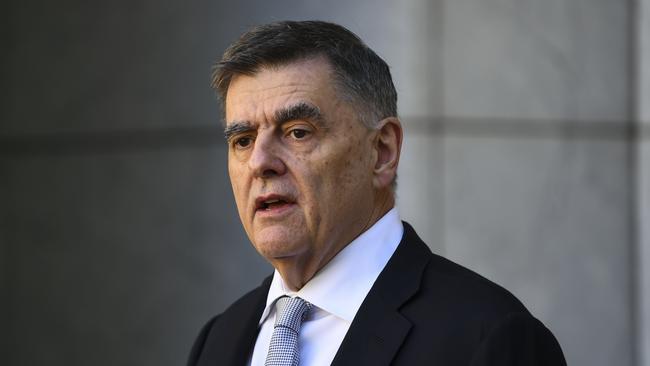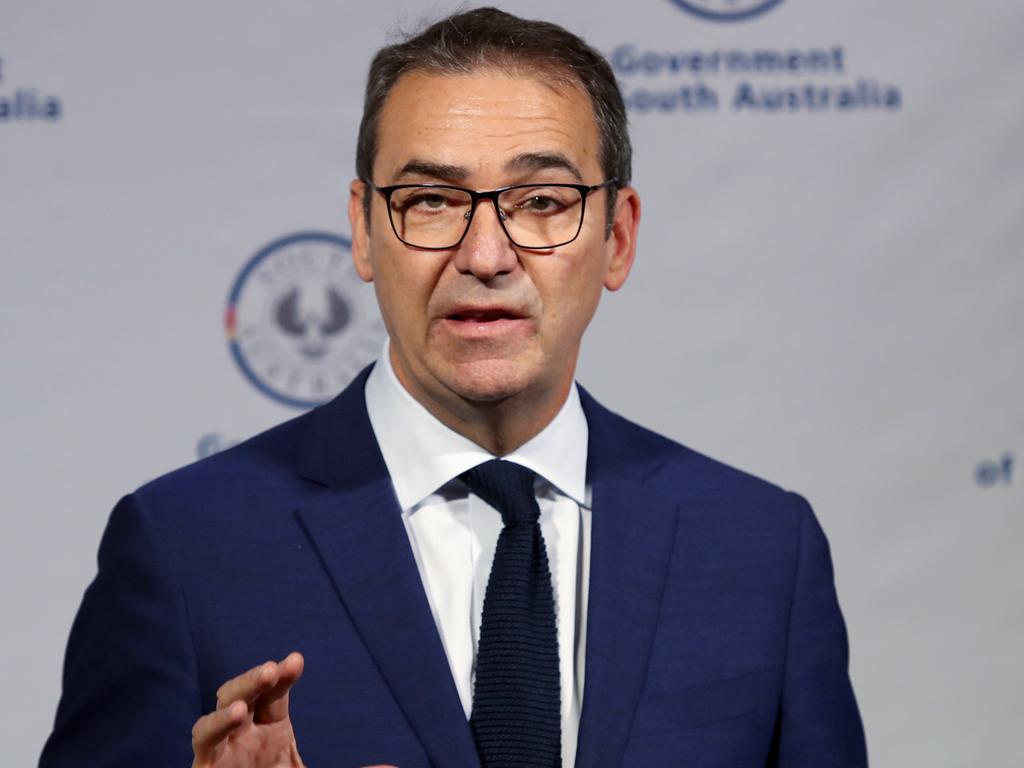Coronavirus: Short-term lockdown of cities ‘won’t work’, says Chief Medical Officer Brendan Murphy
Australia’s Chief Medical Officer has warned against a two or four-week lockdown, saying infections would flare up again.

Chief Medical Officer Brendan Murphy has warned a two or four-week lockdown of Australian cities won’t work because coronavirus infections would flare up again, as some senior doctors call on the government to introduce more extreme measures to give them time to prepare for increased cases.
With Scott Morrison cautioning the outbreak could last at least six months, Dr Murphy said social distancing was “really important” to prevent community transmission.
The government on Wednesday announced new restrictions on aged care visits and that indoor gatherings of 100 people or more would be banned, after all international arrivals were from Monday ordered to self-isolate for 14 days. Outdoor gatherings must be 500 people or less.
“A short-term two to four-week shut down of society is not recommended by any of our experts. It does not achieve anything. We have to be in this for the long-haul,” Dr Murphy said
.
“As the Prime Minister said, it could be six months or more that we have to practise these new ways of interacting so therefore our measures have to be sustainable. There is no way that we can lock down society and make everyone stay home and then in a month's time, undo that, because the virus will just flare up again without any real long-term benefit.”
Western Australia’s combined medical leads advisory group, comprised of representatives from the state’s biggest hospitals, has called for “every mechanism to ‘flatten the curve’” of the coronavirus spread – saying particular attention should be given to expanding isolation restrictions and personal interstate travel.
WA AMA president Andrew Miller said measures such as attempting to reduce school populations by 50 per cent or limiting interstate travel could buy frontline doctors more time to deal with the unfolding situation.
“We’re not calling for lockdowns, cancellations or bans. We’re saying don’t close the schools … but if you decrease the school population without causing undue hardship, if you do that in a staged or managed fashion, that could prevent a school from getting a case of COVID-19 that then has to immediately close, causing chaos and panic,” Dr Miller said.
“And we don’t understand why we would not at least discourage people from flying to go on holidays because you cannot go in economy class on a Qantas flight and maintain personal distance. We’re giving people mixed messages.”
Dr Miller noted he and his peers had a vested interest in slowing the spread of the coronavirus because in a month there would be more masks, test kits and ventilators to help fight the disease.
“The government seems to be saying ‘we don’t need to slow this down more than we’re doing’. The frontline is saying ‘are you sure about that because we’re not ready’,” he said.
Stephen Duckett, the Grattan Institute’s health program director, agreed with Dr Murphy a two-week lockdown would be ineffective.
“People may not be aware they have the disease for up to 14 days after they contract it but if your partner has it and you get it four days after the lockdown starts and so on and so forth, lock down for exactly 14 days doesn’t actually work,” he said.
“You do want to increase spatial isolation, you do want to as far as possible reduce contact but that doesn’t mean shutting people up in their rooms and houses.”
Dr Duckett said shutting Australia’s borders, reducing meetings and not having meetings of more than 50 or 30 people were useful measures but going to cafes and restaurants was okay as long as customers kept 1.5m distances from each other.
The Prime Minister said there was no short-term, quick fix to the coronavirus outbreak.
“The idea that you can just turn everything off for two weeks and then turn it all back on again and it all goes away, that is not the evidence, that is not the facts, that is not the information and it is not our way through this,” he said.








To join the conversation, please log in. Don't have an account? Register
Join the conversation, you are commenting as Logout